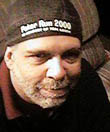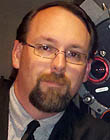|
|
This topic comprises 2 pages: 1 2
|
|
Author
|
Topic: Recovering Deleted Content
|
|
|
Randy Stankey
Film God

Posts: 6539
From: Erie, Pennsylvania
Registered: Jun 99
|
 posted 05-04-2013 12:13 PM
posted 05-04-2013 12:13 PM




My guess is that it is like any other computer system.
Deleting files from a hard drive does not necessarily erase the data. It only releases the sectors on the drive that were allocated to those files for reuse. Therefore, the data isn't really gone. It is just "hidden," so to speak. There is a caveat, however...
Because those sectors on the drive are released, the operating system can reuse them at any time. When that happens, the data will be overwritten and lost forever. While it is possible to use some sort of software to trace the locations of all the data on the system, if another file was allocated to those sectors, the recovery software will hit a dead end.
Further, I am guessing that, because a digital cinema server uses a RAID system, file recovery is likely to be even more complicated and difficult than usual. The way I understand, RAID can reallocate data at virtually any time. Recovering files across multiple discrete drives would be like searching for a needle in a haystack.
Theoretically, if you accidentally deleted a file and you stopped everything you were doing then immediately went about trying to recover the data, it might be possible but it wouldn't be easy. The longer you wait before you try to recover, the smaller your chances become.
In theory, maybe. In practical reality, fat chance.
| IP: Logged
|
|
|
|
|
|
|
|
|
|
|
|
|
|
|
|
|
|
|
|
|
|
|
|
|
|
Marcel Birgelen
Film God
Posts: 3357
From: Maastricht, Limburg, Netherlands
Registered: Feb 2012
|
 posted 05-10-2013 01:15 AM
posted 05-10-2013 01:15 AM




There are multiple levels at work here:
1) RAID: It doesn't matter very much if it is software or hardware or if it is RAID1, 5, 6 or whatever. RAID itself is pretty much transparent to the filesystem. If it is hardware RAID, it offers a big container that mostly looks like a single disk. If it is software RAID, a piece of software does essentially the same, but to most parts of the operating system, it is still one large disk.
RAID usually doesn't move stuff around. The most popular RAID formats are RAID1 and RAID5. RAID1 is nothing more than a big mirror, everything that's been written to Disk A is written to Disk B, to the exact same location (as long as the controller is concerned). RAID5 uses striping, in short, if you write data to a RAID5 array, the data gets evenly spread over your disks. To every chunk of data, a parity information is added. If a disk fails and the parity data gets lost, your data is still intact, if a disk fails and a part of the data chunk is lost, it can be restored using the parity information.
In normal operation, RAID doesn't move around stuff, even if a disk fails, data isn't moved around. RAID is also not aware of any files, it just sees "blocks of data". The only reason to actually move data around, would be in the event of an expansion of the RAID container itself and that almost never happens.
But even if RAID would be constantly moving stuff around, that wouldn't matter a layer up. Because RAID is not aware of any filesystem specifics, it can't just destroy information. Even if it moves stuff around, to the OS/FS layer, it would still be the same data.
2) The actual hard disk itself. A modern hard disk is primarily a big block of data storage to the controller. Most of the lower-level stuff is completely transparent. A hard disk might actually move stuff around, if a sector becomes bad, but that's also transparent to the controller, the hard disk keeps track of this itself.
3) The filesystem. That's the layer that implements the actual files and access to those files. There are many filesystems around, but the most common ones on modern Linux based systems are EXT3 and EXT4. EXT3 and EXT4 also don't happen to move stuff around very much, unless you specifically ask for it.
If you delete a file from an EXT3 filesystem, then you're just deleting the inode for that particular file. The data itself does not get removed. The inode stores, amongst a few other things, the locations of the blocks on the disk/RAID where the file is stored. It is a "virtual" location, as it doesn't directly match with the location of a physical disk, it matches with a location given by the RAID itself.
If you run a specific "undelete" utility, that utility will scan your filesystem at a low level and search for blocks that look like they contained a file, but do not have an active inode. That way, deleted files can often be restored.
There obviously is a catch: The blocks that were previously occupied by your deleted file, are now once again available for allocation. So the operating system can use those blocks for new files or growing, existing files.
So, the longer your system is running and the more data you either changed, moved around or added, the bigger the chance will be that at least one of the blocks of your deleted files will be overwritten with new data. At that point, your data becomes at least partly unrecoverable.
There are a few modern filesystems like ZFS that can improve file and "data recoverability" by using "copy-on-write" techniques. That way, as long as there is space left, data essentially is never overwritten.
Regarding the recovery of lost DCPs, there is, as Carsten has put it, another layer of complexity. It's a bit more difficult as restoring an accidentally deleted Word or Excel file. The DCPs are probably not just copied verbatim into a single directory, as they appeared on the original disk. To do a successful undelete, you also need to know some internal specifics off your playback server.
| IP: Logged
|
|
|
|
All times are Central (GMT -6:00)
|
This topic comprises 2 pages: 1 2
|
Powered by Infopop Corporation
UBB.classicTM
6.3.1.2
The Film-Tech Forums are designed for various members related to the cinema industry to express their opinions, viewpoints and testimonials on various products, services and events based upon speculation, personal knowledge and factual information through use, therefore all views represented here allow no liability upon the publishers of this web site and the owners of said views assume no liability for any ill will resulting from these postings. The posts made here are for educational as well as entertainment purposes and as such anyone viewing this portion of the website must accept these views as statements of the author of that opinion
and agrees to release the authors from any and all liability.
|

 Home
Home
 Products
Products
 Store
Store
 Forum
Forum
 Warehouse
Warehouse
 Contact Us
Contact Us




 Printer-friendly view of this topic
Printer-friendly view of this topic




![[thumbsup]](graemlins/thumbsup.gif)









